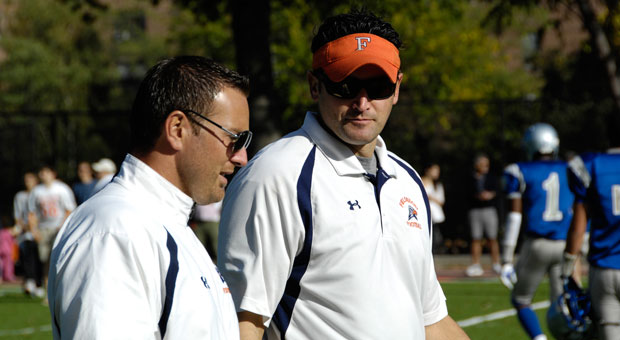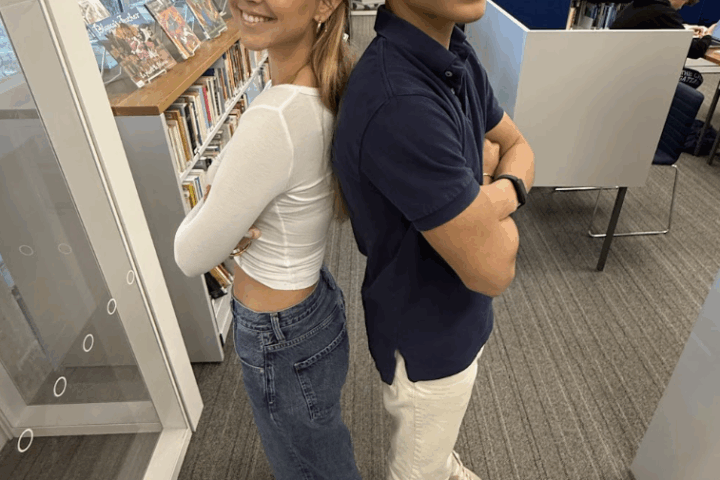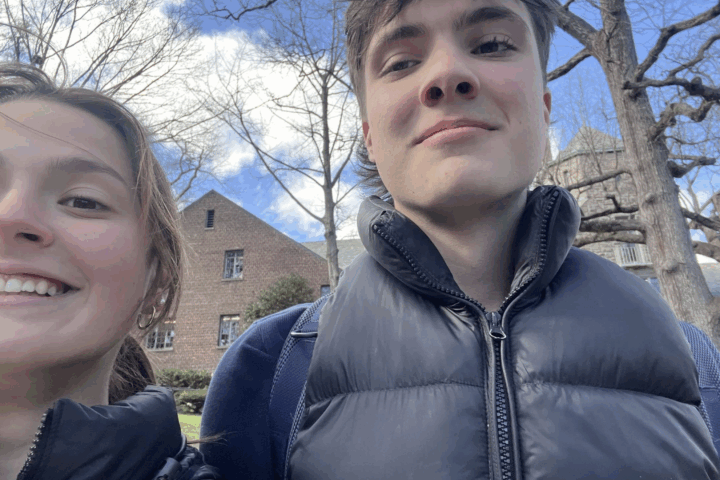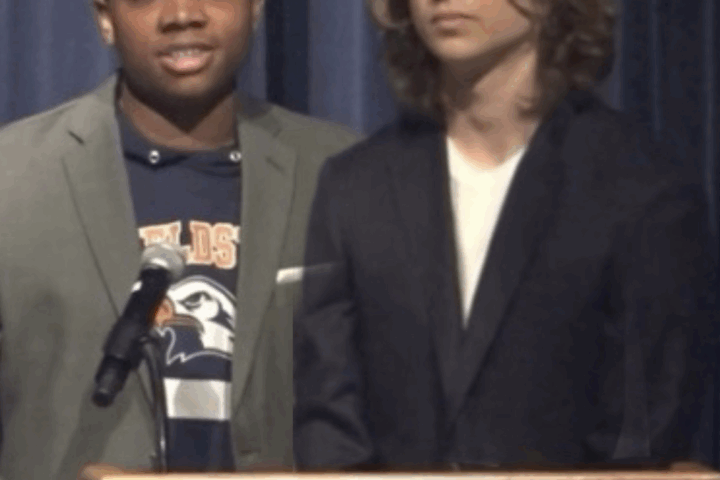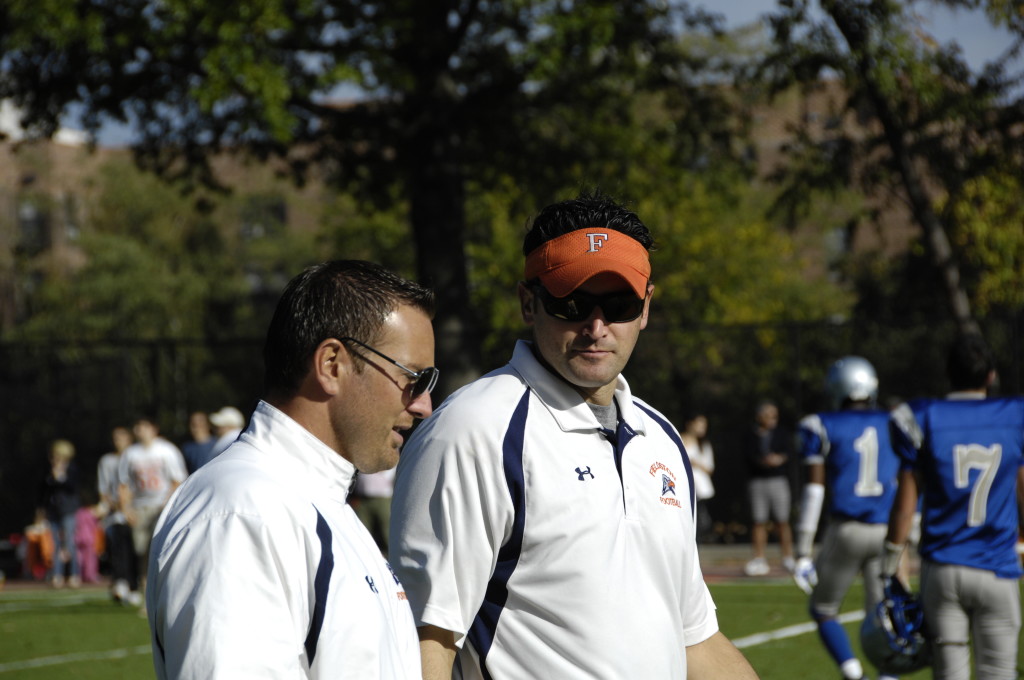
Newly named Athletic Director Gus Ornstein (Class of ’94) admits he was “shocked” when Steve Bluth announced that he was planning to leave Fieldston at the end of the 2013-14 academic year. Ornstein has been at the K-through-eighth Mandell School in Manhattan for the last four years, where he constructed the athletic program (“When I got to Mandell,” he says, “we were just beginning to have a middle school and there was no existing athletic [department]”) from the ground up. The former three-sport Eagle wasn’t planning on leaving Mandell just yet, but when the Fieldston job unexpectedly opened up, it was simply too enticing to ignore. “I think for me the fact that I have been coaching there for the past nine years [attracted me to the job],” Ornstein says. “Fieldston has always been a special place for me ever since I graduated, and having the opportunity to return home, so to speak, in a full-time position and run the athletic program is in a lot of ways a dream come true.”
Given the opportunity to create Mandell’s athletic program from scratch, Coach Ornstein says, “presented a ton of challenges and a ton of really cool opportunities.” He believes that his experiences on the Upper West Side at Mandell provided him with invaluable lessons and preparation for the load that he will take on at Fieldston. “I think a lot of the things I dealt with [at Mandell] are similar to the things I am going to be facing at Fieldston…I have handled transportation, getting officials [for various sports], hiring coaches, securing fields. I think that the fact that I have been involved in every single aspect that goes into a program is certainly going to help me.”
In terms of his plans for Fieldston sports moving forward, Ornstein wants to continue the upward trend that Eagle athletics have experienced in Coach Bluth’s time at the helm. But Coach Ornstein also believes that Fieldston should develop a stronger synergy between its athletic department and academic realm. “I want us to understand that as a school we can be tremendously successful in athletics and at the same time continue to be as strong academically as we have always been. If we can continue to change that [perception] that strong athletics don’t equal strong academics, then our athletic program can continue to improve and who knows how great we can be down the road?
Coach Ornstein wants to help build a sports culture at Fieldston in which “it is not necessarily about winning games” as much as it is about “the experience” that every Fieldston athlete goes through. He sees sports as a tool for empowering Fieldston students, for “creating leaders, developing kids, and giving them every opportunity possible to be successful.” Ornstein believes that if that approach is adhered to, the wins will come. “For me, the number one thing is the experience…if the athletes are having a good experience, if the coaches are positive with them…they are going to be successful,” he says.
Ornstein attributes much of his success as Fieldston’s football coach to his positive mindset. So how did Coach Ornstein adopt his upbeat coaching philosophy? “I have played for some big name [coaches],” he says. “Guys who are in your face and degrading, and I think that shaped who I am today because it either breaks you down or makes you mentally tough. I am at the point now where it takes an awful lot to make me frazzled. When I took the job at Fieldston, I vowed to never be like those coaches because it just wasn’t fun. It took all of the enjoyment out of the game. I wanted to be somebody who my players would look up to and respect, someone who they would work hard for because they didn’t want to let me down. It’s hard to play for someone who is always in your face because you just get scared to play. I want my guys to play relaxed and play with confidence.”
Interestingly, the demeanor Ornstein wishes for his players to approach the game with seems to be the same way in which he carries himself. Coach Ornstein can often be spotted smiling during big moments in Fieldston football games. His composure and equanimity serve as examples for his players to follow. Jake Godosky, a junior tight end on the football team, remembers a game last year when Ornstein’s positivity shone through. “My sophomore year, first game of the season, [senior running back] Jabari Hurdle-Price got injured early in the game and everyone knew it was bad. We should have won the game, but the referee robbed us. After the double overtime loss, everyone was so down. But Gus went on not to talk about the loss at all but to talk about how proud he was of us, how hard we played and how it was amazing to watch us work as hard as we did.”
As ecstatic as Coach Ornstein is to be coming to Fieldston full-time, his arrival here comes bittersweetly for some. “It has been emotional for me, seeing the kids [at Mandell] and telling them that I am leaving,” he says. “In the same sense, everyone understands the opportunity that I have now. And they understand what Fieldston means to me.”
For the first time in twenty years, Gus Ornstein will be at Fieldston on a day-to-day basis. When he was in high school, Fieldston had a grass football field “that was basically mud” and a slippery gravel track — a far cry from the state-of-the-art turf field and polyurethane that Fieldston athletes occupy today. But some things haven’t changed; John Dwinell, currently a Lower School gym teacher, was Ornstein’s varsity baseball coach, and Ornstein says that a lot of his academic teachers are still here. “I had a great experience [as an athlete at Fieldston]…I love everything about this school,” he recently told the Fieldston News, beaming. “It’s kind of what brought me back.”

